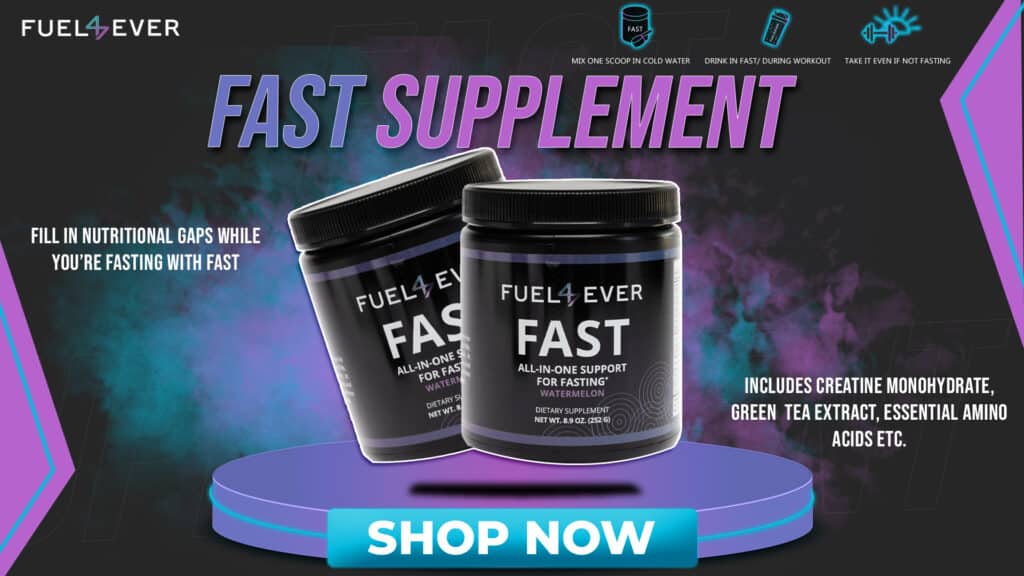Certain supplements and beverages can potentially disrupt fasting, which hinges on their composition, possibly involving sugar content.
The trend of fasting as a lifestyle choice is on the rise. However, fasting periods are temporary, and during breaks, you reintroduce food, thus ending the fast. This process requires caution, as certain foods are more suitable than others.
Furthermore, specific foods, drinks, and even supplements can inadvertently disrupt fasting, while some have minimal influence. This piece explores foods, beverages, and supplements that are less likely to hinder fasting and offers guidance for ending a fast.
What is Intermittent Fasting?
Intermittent fasting is a dietary approach alternating between eating and minimal calorie intake periods. Its focus is on meal timing rather than food selection.
Despite its recent popularity, intermittent fasting has historical roots in fasting practices for spiritual, health, or survival reasons. Its purpose extends beyond calorie restriction, aiming to prioritize bodily maintenance and recovery over digestion.
Typically, fasting routines encompass 12 to 16-hour fasts, while others involve 24 to 48-hour fasts once or twice a week.
During fasting, the body undergoes metabolic shifts, triggering ketosis, where fat is utilized for energy when carbs are scarce. Moreover, fasting lowers insulin levels and encourages autophagy, eliminating unnecessary or damaged cells.
Research supports intermittent fasting supplement’s advantages in weight loss, blood sugar control, heart health, inflammation reduction, and mitigating chronic disease risks.
Foods You Can Eat While Fasting
Fasting involves abstaining from food consumption, but there’s room to include select foods and beverages without compromising fasting benefits, which also includes supplements for fasting.
Experts suggest that you can sustain ketosis as long as your carbohydrate intake remains below 50 grams daily while fasting.
Below, you’ll find a list of foods and drinks permissible during fasting:
- Water: Calorie-free, plain or carbonated water ensures hydration throughout fasting.
- Coffee and Tea: Consume these without added sugar, milk, or cream. Minimal amounts of milk or fat may reduce hunger for some.
- Diluted Apple Cider Vinegar: Mixing 1–2 teaspoons with water can hydrate and curb cravings.
- Healthy Fats: Some incorporate coffee with MCT oil, ghee, coconut oil, or butter for a slight energy boost between meals.
- Bone Broth: Rich in nutrients, it helps restore lost electrolytes from extended water-only periods.
Note that foods containing calories, like healthy fats and bone broth, technically disrupt fasting. Nevertheless, consuming small quantities of these low-carb, high-fat, moderate-protein foods won’t hinder ketosis.
How Supplements Affect Fasting
It’s improbable to develop nutrient deficiencies while fasting, although the likelihood depends on the fast’s restrictiveness and duration.
Some individuals opt for supplements during fasting to ensure sufficient intake of vitamins and minerals. Repeated fasting, especially with a nutrient-poor diet, might lead to deficiencies.
Understanding which supplements might disrupt the fast is crucial when supplementing during fasting. It helps you decide whether you should take them with a meal or during the fasting window.

Supplements that are more likely to interrupt fasting include:
- Gummy multivitamins: These often contain slight amounts of sugar, protein, and occasionally fat, potentially breaking the fast.
- Branched-chain amino acids (BCAAs) seem to prompt an insulin response opposing autophagy.
- Protein powder: It has calories and triggers insulin release, signaling the end of fasting.
- Supplements with specific components: Those having sugar or calorie-containing ingredients like maltodextrin, pectin, cane sugar, or fruit juice concentrate can disrupt the fast.
Supplements that are less likely to disrupt fasting include:
- Multivitamins: Brands without sugar or additional fillers should have minimal or no calories
- Fish or algae oil: These supplements contain negligible calories and no digestible carbs in standard doses.
- Individual micronutrients: This encompasses supplements like potassium, vitamin D, or B vitamins (except fat-soluble vitamins, which are better absorbed with food).
You may wonder, Does creatine break a fast Creatine: Calorie-free and non-affecting to insulin response.
Pure collagen might slightly hinder autophagy but shouldn’t significantly impact ketosis or fat burning.
Probiotics and prebiotics: Generally devoid of calories or digestible carbs.
What to Eat to Break Your Fast
To initiate the end of your fast, consume gentle foods in moderate amounts to prevent overindulgence.
For a smooth transition out of fasting, introduce easily digestible small portions of food, avoiding overwhelming your digestive system.
Breaking your fast with foods rich in fat, sugar, or excessive fiber might lead to discomfort and bloating due to difficult digestion.
After fasting, certain foods and beverages like greasy cheeseburgers, cake slices, and sodas can be particularly harsh on your system. Even fiber-rich raw produce, nuts, and seeds could pose digestion challenges.
On the contrary, opt for nutrient-dense foods with mild digestion and a touch of protein and healthy fats for a gentle transition.
Consider these examples when deciding what to eat after fasting:
- Smoothies: Blended drinks offer a gentler nutrient introduction than whole fruits and vegetables due to lower fiber content.
- Dried fruits: Dates, apricots, and raisins, concentrated nutrient sources, are used to end fasts in Saudi Arabia.
- Soups: Soups with digestible carbs and protein, like lentils, tofu, or pasta, are gentle options. Avoid heavy cream or high-fiber, raw veggie-based soups.
- Vegetables: Soft, starchy cooked veggies such as potatoes are suitable post-fast choices.
- Fermented foods: Opt for unsweetened yogurt or kefir.
- Healthy fats: Foods like eggs and avocados are ideal initial post-fast choices.
Starting with easily digestible, healthful options during your first meals post-fast can replenish nutrients and electrolytes while easing your system back into regular eating.
As your tolerance for milder foods grows, reintroduce other nutritious options, including whole grains, beans, vegetables, nuts, seeds, meat, poultry, and fish, resuming your regular diet.
Beware of Overeating
Excessive eating can occur between fasting periods. Although fasting emphasizes meal timing over food choices, it’s not an excuse for unhealthy eating habits.
Overindulging in junk food and overeating can negate fasting’s health benefits. Opt for minimally processed whole foods to maximize overall well-being.
The Bottom Line
While fasting, it’s crucial to recognize the foods and supplements that could disrupt your fast. This knowledge empowers you to make informed decisions about their consumption during or between fasting periods.
Opt for zero-calorie beverages and supplements if you’re fasting.
Some individuals opt for limited portions of specific foods to manage cravings, which might interrupt fasting but maintain ketosis.
Upon concluding your fast, prioritize easily digestible foods with lower quantities of sugar, fat, fiber, or complex carbohydrates. This approach minimizes potential digestion challenges.
Subsequently, transition back to your regular, health-conscious eating routine.
